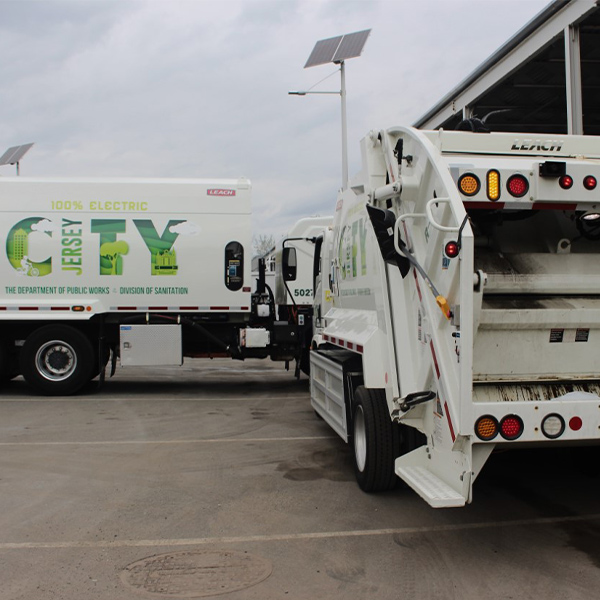NERC’s Standards Committee moved forward with four standards development projects, including one that could lead to new rules for inverter-based resources.
NERC’s Standards Committee moved forward Wednesday with four standards development projects, including one that could lead to new rules for inverter-based resources (IBR).
Vice Chair Todd Bennett from Associated Electric Cooperative led the relatively brief meeting, filling in for chair Amy Casuscelli of Xcel Energy, who was absent.
The new IBR standard arose from Project 2021-04 (Modifications to PRC-002 — Protection and Control), which was initiated to update PRC-002-3 to account for the expansion of IBRs such as solar and wind farms. NERC said the standard needed to be revised to ensure that system planners could access data on grid disturbances for post-mortem event analyses.
Phase 1 of the project was based on a standard authorization request (SAR) submitted by Glencoe Light and resulted in PRC-002-4 (Disturbance monitoring and reporting requirements), which was approved by FERC last week (RD23-4). The committee voted Wednesday to begin Phase II, inspired by a SAR from the Inverter-base Resources Performance Task Force (IRPTF).
Rather than further modify PRC-002, Phase II aims to create a new standard specifically designed around IBRs. Southwest Power Pool’s Charles Yeung, who is currently serving as the Project Management and Oversight Committee’s liaison to the standard drafting team (SDT), explained that the team felt that this approach was the best way to adapt NERC’s standards to the arrival of new technology.
“One of the charges to the team — that’s not in the SAR — was not to upset the current methodology [for determining the] location of DDR [dynamic disturbance recording] data. And of course, that methodology is based on a system with synchronous generation,” Yeung said. “The addition of IBRs is really … about the black box performance of IBRs. So even though it is about data location … it’s really a very separate purpose.”
Participants in the meeting were supportive of addressing IBRs in a new standard. Philip Winston, formerly of Southern Co., called the drafting team’s plan “a much better approach than trying to shoehorn new technology into old standards.” He added, “The times, they are a-changing.”
The SAR passed unanimously.
New Ride-through SAR Approved
Members also agreed April 19 to move forward development on Project 2020-02 (Modifications to PRC-024 —generator ride-through), accepting the SAR as revised by the project’s SAR drafting team and appointing the team as the SDT for the project.
Some members expressed confusion at the history of Project 2020-02, for which the committee approved a different SAR almost a year ago. (See NERC Standards Committee Moves Projects Forward.) This new SAR was submitted by NERC staff last May after an analysis of system disturbances found that PRC-024-3 (Frequency and voltage protection settings) did not account for many causes of tripping detected in the analysis. The Standards Committee assigned it to Project 2020-02 because of the similarity in subject matter.
Latrice Harkness, NERC’s manager of standards development, clarified that the previous SAR is not “being disposed of,” but that the SDT will need to examine both SARs to determine how it wants to incorporate them.
While the motion passed without objection, Marty Hostler of the Northern California Power Agency reminded members to be mindful of the burden that frequent changes to standards places on industry.
“I remember there being a big push for PRC-024. Everyone had to get all the studies done, and then it got changed, and then it got changed again. And now we’re saying it’s not suitable, or may not be suitable,” Hostler said. “Industry groups like us and our members devoted a lot of time to complying with the standards … and now we’re going to possibly have to do the work again. So, let’s just keep that in mind and not just push a project through just for the sake of getting it done in a certain time frame.”
IBR Event Reporting, PRC Successor
The committee turned to the SAR drafting team for Project 2023-01 (IBR event reporting), which is intended to revise the reporting thresholds for generation loss events to account for the performance of renewable resources. NERC’s Reliability and Security Technical Committee endorsed the SAR at its December meeting, and the Standards Committee authorized the solicitation of drafting team members in January. Twelve nominations were received, all of them recommended by NERC for appointment. The committee approved them all unanimously.
Finally, members voted to post the draft standard PRC-005-7 for a 45-day formal comment period, with an initial ballot to be conducted in the last 10 days of the comment period. The standard is intended as a successor to PRC-005-6 (Protection system, automatic reclosing, and sudden pressure relaying maintenance) to provide clarity on the grid elements to which its maintenance and testing requirements apply.




